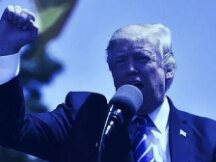Does Moscow believe in cryptocurrencies, not in tears?
The Central Bank of Russia announced yesterday that it will monitor all personal transactions of banks by 2022, primarily to combat online gambling and cryptocurrency fraud. He also said he plans to start driving CBDC after the January recess and plans to ban most cryptocurrencies.
The Russian government recently announced that it may pay more electricity bills to cryptocurrency miners. Members of the State Duma (Russian Parliament) announced that Russian cryptocurrency law would not apply until early February 2022. This cryptocurrency law legalizes cryptocurrencies by levying taxes.
As a result, central banks and government agencies have reported different behaviors of cryptocurrencies. Why is this happening?
Crypto rates have been repeatedly delayed due to protests.
In 2017, Russian President Vladimir Putin said the main danger with cryptocurrencies is using them to break the law. Cryptocurrency and ICO (Initial Coin Offering) regulations were announced in December.
In January 2018, Financial Institutions First published an article titled “Digital Financial Products”, which included among other things the conditions and regulations applicable to cryptocurrencies. These models were submitted to the State Duma on March 16 of the same year.
The original bill was expected to pass until July, but the first review began in May and the second review was postponed until December. However, at the end of November news broke that the bill had returned to initial review, with major changes due to the loss of cryptocurrency mining and other terms and had delayed it. for April 2019.
In January 2020, the Central Bank declared the ruble to be the only legal tender in the Russian Federation. The regulator also said that private cryptocurrencies cannot be equated with fiat, they cannot be fiat and will support if the law prohibits cryptocurrencies.
In February, the bank announced its regulatory requirements, and all transactions involving cryptocurrencies were categorized as “Potential Money Laundering Risk”. And in the new update account freeze events, crypto tools are especially mentioned.
In March, the head of the legal body of the Central Bank of Russia announced that the Digital Financial Assets Act, a bill relating to cryptocurrencies, would be drafted or that the publication and distribution of cryptocurrencies would be restricted. He also said that the central bank does not recognize institutions that advise cryptocurrencies and cannot restrict the Bitcoin market.
In May, a letter was sent to ban the disclosure and all cryptocurrency activity in Russia, and individuals and businesses do not accept cryptocurrency as real payment. Anyone who already owns cryptocurrency should register with the tax office and explain where. There are other requests to add digital benefits content to the law.
The above is considered the highest standard in Russian history, as it means that the crypto industry will be strictly monitored and may be fined and jailed for violations.
In June, the Deputy CFO confirmed at the meeting that cryptocurrencies can be traded on the stock exchange. “The idea is, it can be. If it's handled properly, it can,” he said.
In July, the State Duma passed a law that treated digital currency as property but not as payment. The new cryptocurrency law will come into force on January 1, 2021.
In short, political law oscillates between legality and prohibition, and as long as the law is not fixed, time passes and the crypto-currency market recovers.
In February 2021, senior finance ministry officials said the digital ruble could become a Russian currency.
Although they do not approve of cryptocurrencies, central banks are encouraged to provide digital numbers. As a result, the bank manager announced it to the public in 2019.
The State Duma then approved the cryptocurrency tax bill. The bill requires listed companies to report on the cryptocurrency market if their total annual turnover exceeds 600,000 rubles ($ 8,100).
In May, lawmakers made an amendment to allow cryptocurrency payment contracts.
The biggest controversy is that the central bank is unaware of cryptocurrencies, and lawmakers hope to legalize cryptocurrencies by paying taxes. The rule of law has been repeatedly delayed because the parties did not come to an agreement. In December, news broke that Russia would decide whether or not to follow the cryptocurrency market in 2022.
How does a business develop when there is no consensus?
The Russian cryptocurrency market continues to grow and develop
On December 25, 2021, the Russian government declared that states are free to set higher prices for cryptocurrency users. Previously, the demand for crypto mining machines increased and sales increased. The head of the Russian Financial Services Agency said the Russians have invested 5,000 billion rubles (about $ 67.44 billion) in cryptocurrencies.
National law is not yet clear, but it can be seen that the economy has continued and the laws have gradually changed from initial denial to consensus.
In 2017, the Financial Crimes Enforcement of the US Treasury Department shut down a cryptocurrency exchange called BTC-e, claiming it included $ 4 billion in money laundering in the cryptocurrency industry. This scholarship was created in 2011.
Researchers estimate that since 2016, up to 70% of cryptocurrency transactions worldwide have been associated with BTC-e. The theft of funds after the bankruptcy of Mt.Gox has also affected.
After the capture of Alexander Vinnick, a Russian trader after BTC-e, another trading partner, WEx, who subsequently lost over $ 400 million in cryptocurrency. However, the Russian FSB has reportedly been linked with the cryptocurrency's demise.
In March 2019, it was also reported that members of the Russian FSB were attempting to collect $ 1 million in BTC bribes through the mass media. It is something that has been adopted and, of course, there are companies that support it.

Famous Russian FSBs
In March last year, Vladimir Potanin, CEO of Russian company Norilsk Nickel, announced that the bank had approved his company to run cryptocurrencies on the blockchain platform, media reported. "For some, Russia seems to be ahead of many other digitization decisions. The bank has given us a lot of strength."
It was also announced in an interview with the news in 2019 that he was developing a cryptocurrency on the Hyperledger blockchain network. There are also local newspapers according to which the central bank conducted a four-month trial of its blockchain network.
According to an October 2018 survey, many citizens and businesses in Russia are making money in the cryptocurrency industry, and about half of local ICOs and cryptocurrency companies use the digital device to pay. their salaries. In addition to Bitcoin, Russian operators like Ethereum and Ripple make payments. At the same time, it was noted that young people and men were ready to take the offer and give up on cryptocurrencies.
A survey in December found that over 90% of people said they wanted to pay with cryptocurrency, with 25% choosing cryptocurrency as their first payment method. 40% of participants view cryptocurrency as a long-term investment.
At that time, it was discovered that the largest crypto mine in Russia was in the Leningrad region, covering an area of 4,000 square meters, more than 3,000 mining platforms and a total investment of 500 million. rubles ($ 7.3 million). .
In August 2020, the Russian Administration of Financial Institutions spent 14.7 million rubles ($ 200,000) to develop research tools that track the capabilities of digital assets and manage data requesting cryptocurrency wallets linked to criminality. .
On October 14, 2021, Russians will no longer be able to use digital currency in their home country, but will have the freedom to use crypto wallets abroad. In December, Russia closed several crypto mines.
According to Chainalysis data, the United States and Russia will lead the way for total cryptocurrency money laundering by 2020. Russian President Putin has also called for the illegal crossing of digital assets across borders.
Despite the findings and abuse, the economy as a whole is on the rise, and economic development issues such as the financial crisis and illegal cross-border remittances are finally key to taking care of it.
Economic restrictions and the national crisis in Russia
After the collapse of the Soviet Union in 1991, Russia acquired a mantle of world law, military might and nuclear weapons. Despite the success, all energy, especially industry energy, is very different.
GDP in the year of the collapse was $ 517.9 billion, or 2.16% of the global share, ranking 10th globally. Since then, the treatment of depression has been adopted, and economic freedom, private property, and financial security are important principles, but they are not effective.
Eight years later, its GDP was $ 195.9 billion, or 0.6% of the world total, ranking 22nd in the world. The markets fell and the ruble fell. In 2008, gross domestic product (GDP) was $ 1.66 trillion, or 2.6% of global gross domestic product (GDP), ranking ninth in the world.
GDP in 2020 is $ 1.47 trillion, the 12th in the world. The data doesn't look bad and it's world class.

Russia's GDP data for the last 3 years
In 2020, the GDP of Guangdong Province will reach 11.7 trillion yuan, and the GDP of Russia will reach 9.5 trillion yuan. Compared to the two, Russia's GDP is lower than that of Guangdong.
Initially, after World War II, the only countries that could oppose the United States were the Soviet Union, and Russia, which obtained the coat of arms, continued to "fight". It is an important factor in improving the business for its own growth.
Specifically, after the Ukrainian referendum of 2014, Crimea was separated from Ukraine and annexed by Russia. As a result, Europe and the United States have imposed heavy sanctions on Russia, both militarily and financially.
In 2018, Russia's foreign trade reached $ 687.5 billion, that of the United Kingdom $ 1.15 trillion, and Germany's exports alone reached $ 1.31 trillion. The sanctions have had a major impact on the development of Russia, because the solution of the US dollar does not exist.
Of course, Russia has also planned such protests as the sale of US government bonds, the ban on spending on gas bills, the frequent search for friends, and the frequent crossing of the US dollar.
In addition, remittances from Russia have increased due to the impact of the spread. According to data from the National Bureau of Statistics, revenues reached $ 51 billion in the first eight months of 2021, more than double the level of 2019 and more than a year in 2020.
President Vladimir Putin has said the capital will be exempt for three years, but this time there will be no further exploration and additional taxation if the capital returns to Russia, but the profits will be low. .
In addition to the above cryptocurrency money laundering, it looks like Russia's attitude towards cryptocurrency laws will change. To grow a business, you need to earn money and earn money.
Moscow does not believe in tears, but not in cryptocurrency.
2022 is approaching and Russia's crypto law will be finalized. It's not the foundation, it's part of improving the business.
Although the Russians are investing more in cryptocurrencies, more and more people are ready to accept them, but also speaking, the value needs to improve.
Russia as a country at war will not bet any sort of cryptocurrency because it believes in itself like Moscow does not believe in the sense of tears. As Wang Xiaobo said, no matter how many years have passed and everything has happened, there is always something that is not true.

Scan QR code with WeChat































